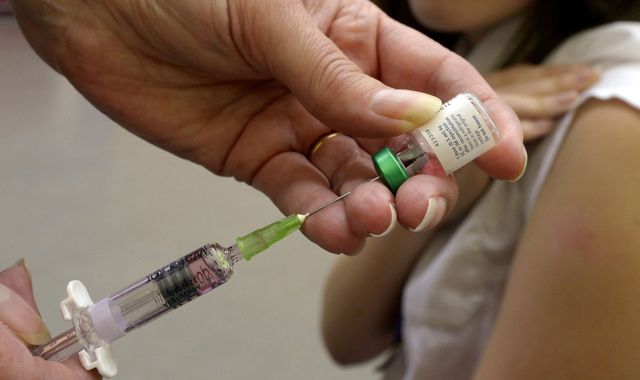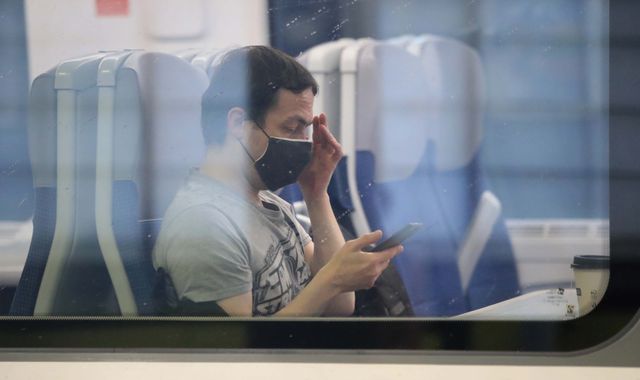Mumps cases hit highest level in a decade in England amid fears over ‘anti-vaxxers’
Written by News on 31/08/2019
The NHS has warned of a “stark rise” in measles and mumps cases amid fears that “fake news” on social media is contributing to fewer people getting vaccinated.


A total of 2,028 cases of mumps were recorded between April and June – the highest quarterly figure since 2009 and more than double the amount over the previous three months, Public Health England (PHE) said.
Cases were reported in every region in England except the North East, and most of those diagnosed were young adults who had not been vaccinated, PHE added.
There were also 301 new measles infections confirmed in England over the same period – a 30% increase on the three months before.
The head of the NHS, Simon Stevens, has warned that “irresponsible” anti-vaccination messages circulated on social media platforms may be contributing to a decline in vaccination take-up.
After the latest measles and mumps figures, Mr Stevens said parents had “enough to worry about without misleading anti-vaxxers sowing seeds of doubt about vaccines” which he said remain the “best chance we have of protecting our children from potentially deadly illnesses”.
“These stark rises in mumps and measles cases show that complacency about vaccines is misplaced and dangerous, which is why the NHS is taking action to boost take-up rates and tackle the fake news peddled on social media and elsewhere,” he added.
Mr Stevens told a summit of health leaders in May that “fake news” messages about vaccination shared on Instagram, YouTube and WhatsApp appeared to be gaining traction, undermining irrefutable evidence that vaccination programmes save lives.
Health Secretary Matt Hancock has said he is not ruling out making immunisations mandatory, saying that anti-vaxxers “have blood on their hands”, while Prime Minister Boris Johnson has demanded urgent action to improve the UK’s declining vaccination rates.
A steady fall in the uptake of the measles, mumps and rubella (MMR) jab has meant the UK has lost its measles free status, just three years after the virus was eliminated.
Currently, only 87.2% of children have the second dose of the vaccine and Mr Johnson has said he wants that figure to increase to 95%.
Researchers last year claimed Russian trolls and social media bots were spreading false information about vaccines on Twitter, using tactics similar to those used in the 2016 US presidential election.
There is a prominent anti-vaccination movement in America, which links MMR injections with autism, following research by the discredited Andrew Wakefield.
In 1998, a study by the British doctor was published in The Lancet linking the MMR vaccine to autism.
The study was discredited, but not before causing mass hysteria over the safety of the vaccine after the study received global media coverage.
MMR immunisations in the UK fell to about 80% nationally in the late 1990s and early 2000s and took many years to recover.
PHE said the mumps component of the MMR vaccine is effective at protecting young children but immunity can reduce over time.
Therefore, older teenagers and adults who received two doses of MMR in childhood can still get mumps although generally in a much milder form than in those who are unvaccinated.
Dr Mary Ramsay, PHE’s head of immunisation, said: “Although it is normal to see mumps outbreaks in universities every few years, we are seeing a significant number of cases, the highest quarterly figure since 2009.
“Coupled with the continued measles outbreaks, these figures clearly demonstrate the need for sustained high vaccination rates.”
(c) Sky News 2019: Mumps cases hit highest level in a decade in England amid fears over ‘anti-vaxxers’







